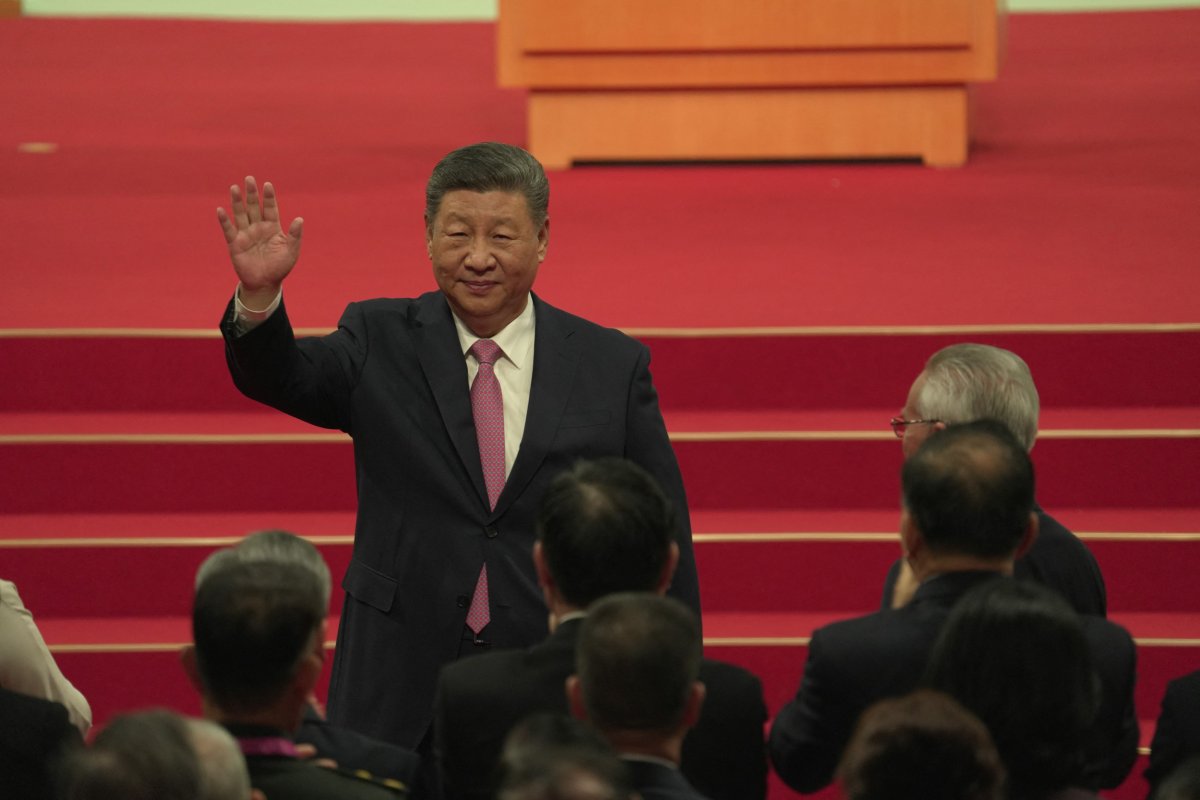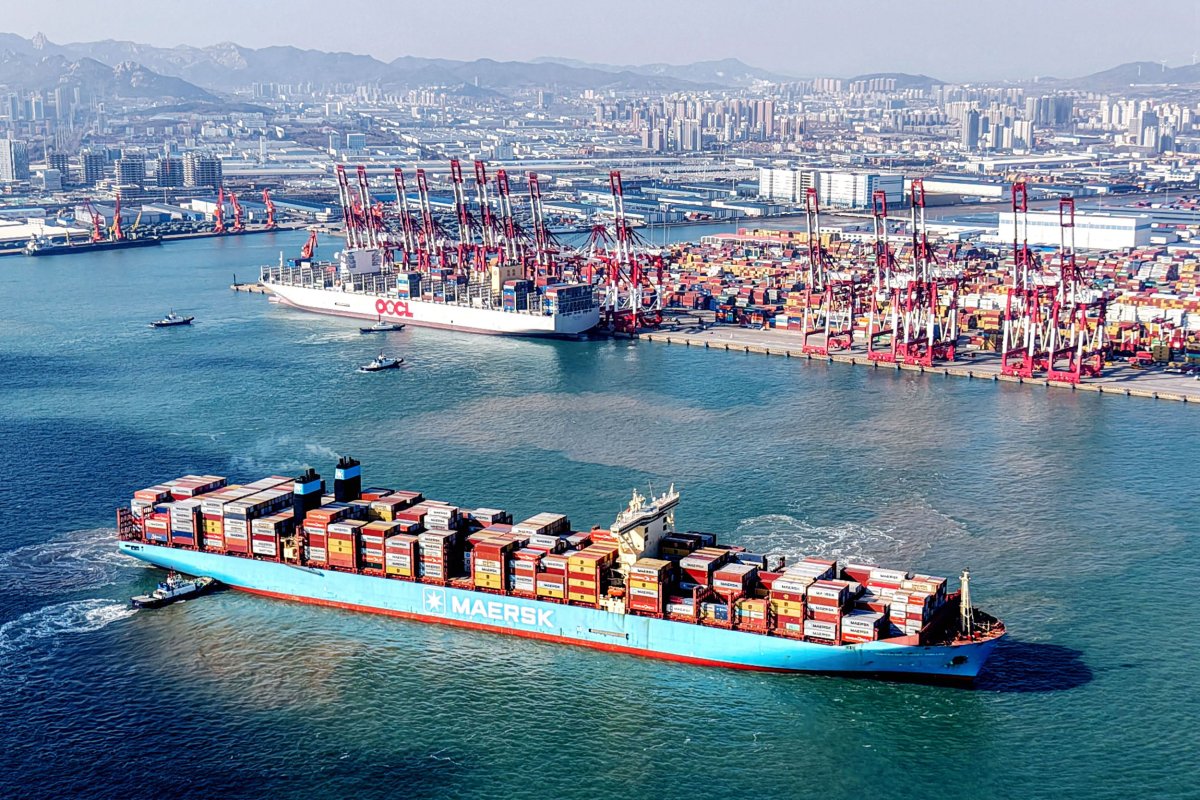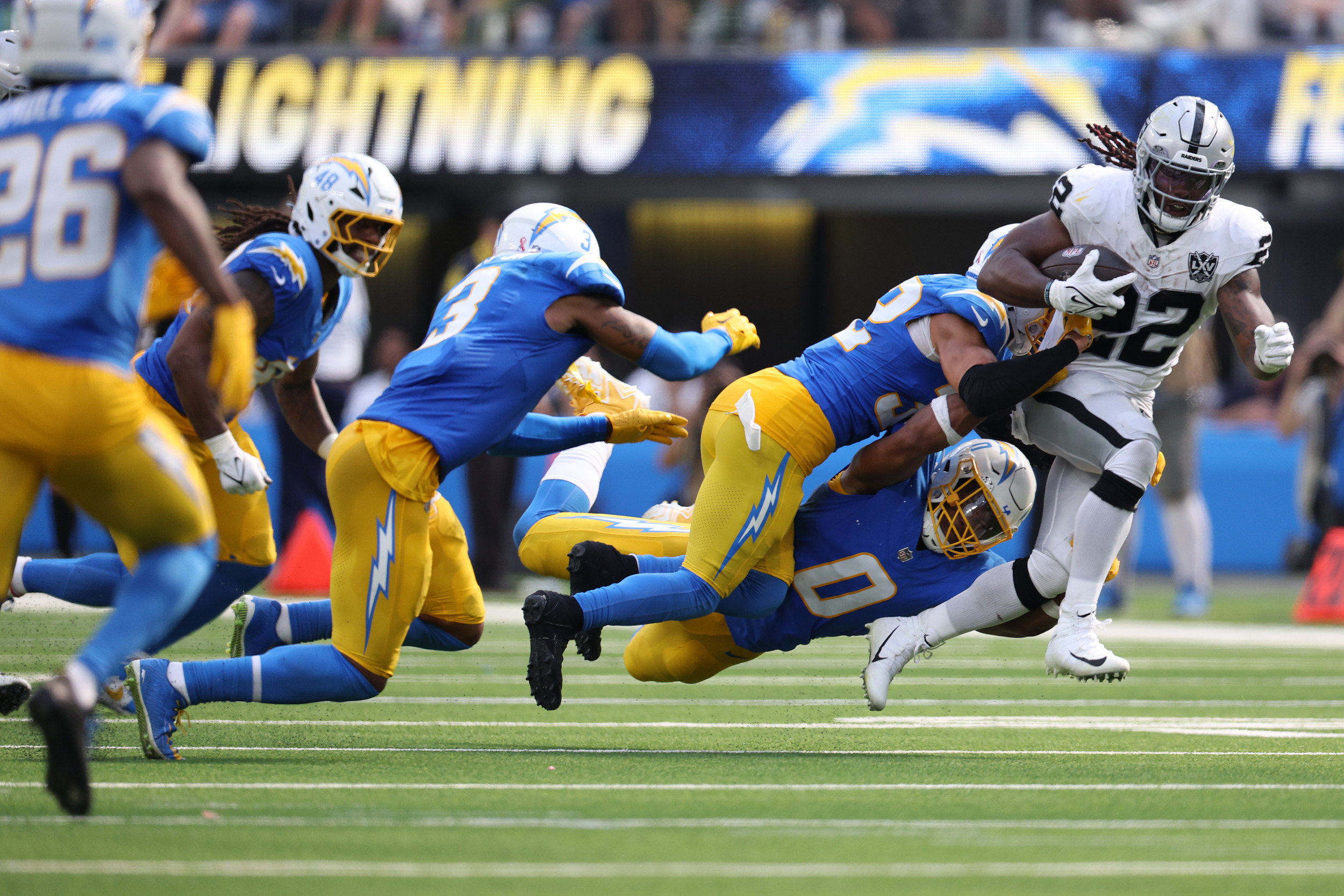China has announced new export controls on over two dozen U.S. companies, but experts told Newsweek that the decision largely appears to be either for show or an effort to stack up bargaining chips ahead of the second Trump administration.
Newsweek reached out to the Trump transition team and the White House by email on Friday afternoon for comment.
Why It Matters
President-elect Donald Trump has made no secret of his plans to implement aggressive measures against China after he takes office on January 20. One such plan that he repeated throughout his 2024 campaign is a possible 60 percent tariff on all Chinese-produced goods.
Trump has repeatedly claimed that his threat to implement heavy tariffs—even against close allies such as Mexico and Canada—is merely an attempt to set the pace for potential negotiations over any number of issues, such as fentanyl.

What To Know
Beijing added 28 U.S. companies—mainly defense industry firms—to its export control list, citing a need to "safeguard national security and interests," Reuters reported.
The list includes such companies as General Dynamics, Boeing Defense, Space & Security, Lockheed Martin and Raytheon Missiles & Defense.
Officials also targeted "dual use" items, which are goods with both a military and civilian application, and often prove critical to defense manufacturing.
William Alan Reinsch, senior adviser for the Economics Program at the Center for Strategic and International Studies (CSIS), called the move "preemptive retaliation," serving as the "latest shot across the bow" for the U.S.
"There have been a number of them – export controls on gallium, germanium, antimony, the investigation of micron, tougher export controls on some of the same critical materials," Reinsch told Newsweek. "They've gradually been tightening the screws."
"All of the efforts really are, I think, a means of reminding the American government – both the current one and the upcoming one – that they're integrated into our supply chains, and they have a lot of influence over supply chains, and they can cause us a lot of difficulty if they want to," Reinsch said.
But Reinsch added that this newest wave of controls aimed at defense companies—i.e., companies that do not normally do business with China—helps blunt the impact. Boeing, due to its dual function as a defense and civilian-facing company, makes it the most vulnerable to these newest controls.

Overall, experts remain largely unbothered by China's newest announcement and believe it mainly serves a superficial rather than substantially concerning purpose.
"I definitely think Beijing is trying to asset itself in advance of the Trump administration," Emily de la Bruyere, senior fellow at the Foundation for Defense of Democracy (FDD) with a focus on China policy, told Newsweek.
"It's not the first time China's used economic measures like this against a set of companies," Bruyere said. "They're already pretty restricted. I think it seems much more symbolic and signaling move than anything else."
Nathan Picarsic, also a senior fellow at the FDD with a focus on China policy, called China's move "largely symbolic" and argued that the affected companies will likely "shrug it off."
"I think they do like to draw attention to the U.S. military industry," Picarsic said. "They like to draw attention to tying to add costs and impose costs anytime we're engaged with Taiwan, but in terms of broader macroeconomy, these are relatively safe targets for them to taking swipes at."
Picarsic added that if China wanted to have serious impact with its export controls, officials would instead target "more commercial applications."
"Make it harder for GM and Ford to get parts that they need for cars that are rolling off the line ... and then there's a whole host of things they could do – sanctioning individuals and financial entities that would have more of a material impact," Picarsic said.
What Happens Next
The Trump administration will have a chance to hit back at China after the president-elect takes office later this month, and he will have a chance to prove whether the tariff threat was mainly a negotiating tactic or a centerpiece of his new foreign policy.
Reinsch dismissed concerns that the new export controls will have much impact on Trump's plans, saying that "each side makes its own calculations" and that he could see China waiting to see what Trump does after he takes office before announcing any further actions.



















:quality(85):upscale()/2024/04/24/878/n/3019466/36c5693c662965c5d1ce91.72473705_.jpg)
 English (US) ·
English (US) ·